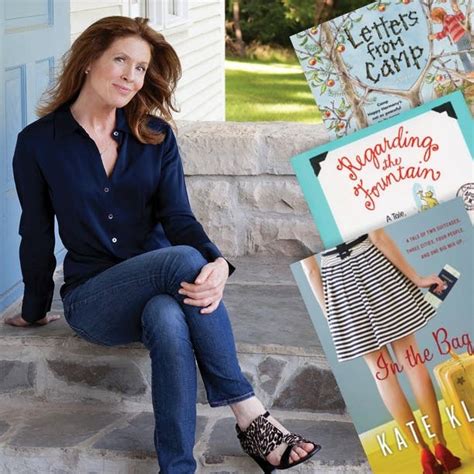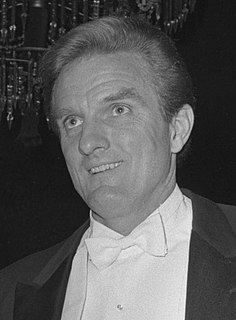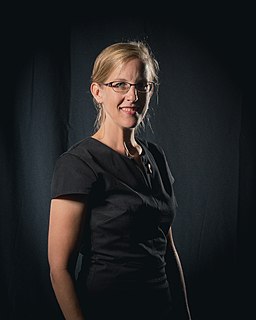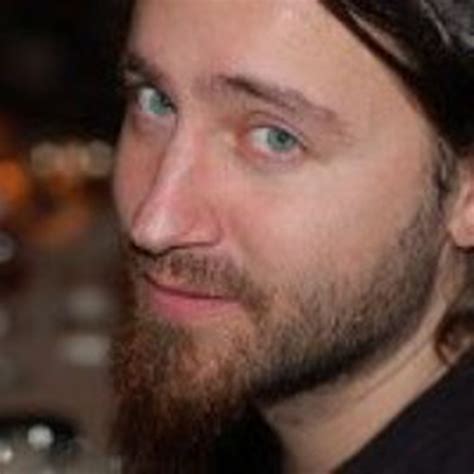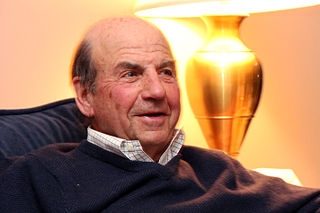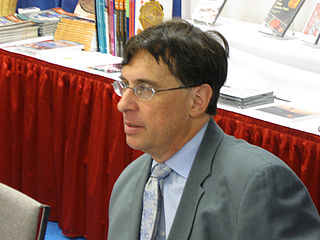A Quote by Kate Klise
Many adult book authors supplement their income by teaching at the college level. Full-time professors fare well, but pay for adjunct professors is notoriously shabby. Children's book authors have a sweeter deal. We're invited by schools, libraries, law firms, and Fortune 500 companies to share our best writing tips and strategies.
Related Quotes
I think what's happening with book advances is something that most of the world just doesn't fully appreciate, especially when it comes to nonfiction, because writing a book of investigative journalism is an expensive endeavor, and the system works best if you have publishers making bets on authors.
When I started writing, the deal was that publishers gave you a grand or two as an advance to buy some sweets, with the promise that they would make a big putsch with your fourth book when you'd built up a bit of a following. But by the time my fourth book came out, previously unpublished authors were the new big thing.
We're in the media business today. We're in the business of helping authors and publishers market their books to readers. And that's where we make our money. We sell book launch packages to authors and publishers and really help accelerate, build that early buzz that a book needs to succeed when it launches and accelerate that growth through ads on the site.
There are authors like David Foster Wallace or Raymond Chandler - with voice-based authors I might end up a completist, because what I love about them isn't just the particular construction of one novel or another but their flavor. There is an Austrian writer, Thomas Bernhard, as well. One book is not necessarily greater than another book, but they just have this incredible, unique voice, so it doesn't really matter which one you read.
Teachers and librarians can be the most effective advocates for diversifying children's and young adult books. When I speak to publishers, they're going to expect me to say that I would love to see more books by Native American authors and African-American authors and Arab-American authors. But when a teacher or librarian says this to publishers, it can have a profound effect.
Well, first you have to love writing. A lot of authors love having written. But I enjoy the actual writing. Beside that, I think the main reason I can be so prolific is the huge amount of planning I do before I start to write. I do a very complete, chapter-by-chapter outline of every book I write. When I sit down to write, I already know everything that's going to happen in the book. This means I've done all the important thinking, and I can relax and enjoy the writing. I could never write so many books if I didn't outline them first.
This book reminds me of James Gleick's Chaos. The ideas and stories in Loving and Hating Mathematics are timely, interesting, and sometimes even profound. The authors, writing for nonspecialists, take pains to explain technical ideas in nontechnical language, and the book should interest general readers as well as a large mathematical audience.
I think Clinton Foundation is illegal- it's been really well documented in the book «Clinton Cash» and the book has been absolutely approved by so many people. You've had accounting firms going in there, you've had so many people going in. And it's pay for play. I mean, if you look at it's pay for play.
Authors have a greater right than any copyright, though it is generally unacknowledged or disregarded. They have a right to the reader's civility. There are favorable hours for reading a book, as for writing it, and to these the author has a claim. Yet many people think that when they buy a book they buy with it the right to abuse the author.
